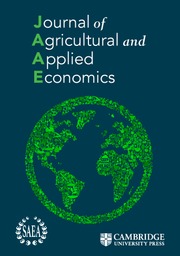Article contents
Agribusiness And Extension: Characteristics Of Successful Programs To Serve A Rapidly Changing Clientele
Published online by Cambridge University Press: 09 September 2016
Abstract
The market for agribusiness extension activities and programming is diverse, intensely competitive, and national or international in scope. It is a market that agricultural economists cannot serve alone. Despite these complexities, a strong agribusiness extension effort is critical to the success of agribusiness research and teaching programs. Agribusiness extension opportunities include extending traditional agricultural economics research, small business management programs, economic/technical education programs, and management education. Keys for conducting successful agribusiness extension programs include understanding client needs, locating and employing the best instructional talent available, and flawless execution of the activity. Stimulating faculty interest in agribusiness extension is a major challenge. Most schools will have the opportunity to focus their traditional extension education efforts on the non-traditional agribusiness audience. A few schools will be successful in developing a new extension program emphasis in agribusiness management education. Both types of contributions are important for the long-run viability of the profession.
- Type
- Invited Papers and Discussions
- Information
- Copyright
- Copyright © Southern Agricultural Economics Association 1992
References
- 1
- Cited by




